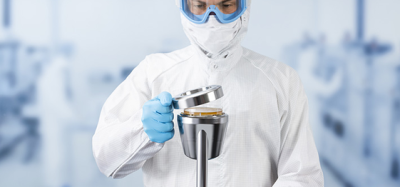AI adoption in life science labs faces a growing skills barrier
Posted: 2 October 2025 | Catherine Eckford (European Pharmaceutical Review) | No comments yet
Pistoia Alliance survey also found that the greatest benefit for lab digitalisation has shifted from efficiency to innovation.


A majority of life science laboratories are planning to adopt artificial intelligence (AI) within the next two years, but face a number of obstacles to their technological ambitions.
Chief among them is a shortage of skilled people, according to Pistoia Alliance and its The Evolution of Labs report.
The not-for-profit organisation’s latest survey found that more than 75 percent of labs plan to adopt AI within two years, but 34 percent of respondents said a lack of skills was the main obstacle to adoption, up from 23 percent in 2024.
“AI is evolving faster than any other lab technology with new models and approaches such as multimodal and agentic AI emerging every few months. This makes access to skills and expertise increasingly critical if companies are to keep pace with change and apply AI successfully to accelerate R&D”
Pistoia’s President Dr Becky Upton said: “AI is evolving faster than any other lab technology with new models and approaches such as multimodal and agentic AI emerging every few months. This makes access to skills and expertise increasingly critical if companies are to keep pace with change and apply AI successfully to accelerate R&D.”
Alongside with this bottleneck, the survey also found that companies have a growing appetite for AI-specific education, with 51 percent calling for best practice guides, 45 percent wanting AI/ML courses, and 40 percent opting for skills training.
Pistoia’s research also found that life science labs are trending away from integrating emerging technologies such as digital twins and quantum technology, in favour of electronic lab notebooks (ELNs) and cloud platforms.
The report gathered responses from over 200 industry experts across Europe, the Americas and APAC and highlighted the growing interest in artificial intelligence (AI).
Rising life science demand for cloud computing
The survey also demonstrated the rising demand for cloud platforms, with 80 percent of respondents reporting they use these platforms in the lab. This figure is up from 70 percent in 2023. Pistoia Alliance noted that likely contributing factors include reduced security concerns as benefits of scale and accessibility become clearer.
ELNs were the most widely used technology. Adoption rose to 81 percent this year, from 66 percent in 2024, the data showed. Pistoia suggested that this result could reflect companies “reinvesting in modernised platforms as they recognize that robust, digitised data foundations are essential to support AI and analytics”.
Lastly, clarity around regulation is improving for life science labs. Just nine percent of respondents saw regulation as a barrier to AI, down from 23 percent in 2024. Pistoia Alliance considered this is due to clearer rules and companies having greater confidence in compliance.
Dr Christian Baber, Chief Portfolio Officer at The Pistoia Alliance, concluded: “Last year, the number one benefit of digitising the lab was seen as improving the efficiency and effectiveness of R&D.
“This year we have a new top benefit in accelerating innovation and new breakthroughs. It shows investment is becoming more focused, with companies moving beyond using technology just to speed up processes and instead looking at how technology can enable better science.”
Related topics
Artificial Intelligence, Data Analysis, Digital, Digital twins, Electronic Laboratory Notebooks (ELNs), Industry Insight, Lab Automation, Lab Equipment, Regulation & Legislation, Research & Development (R&D), Technology, Therapeutics









